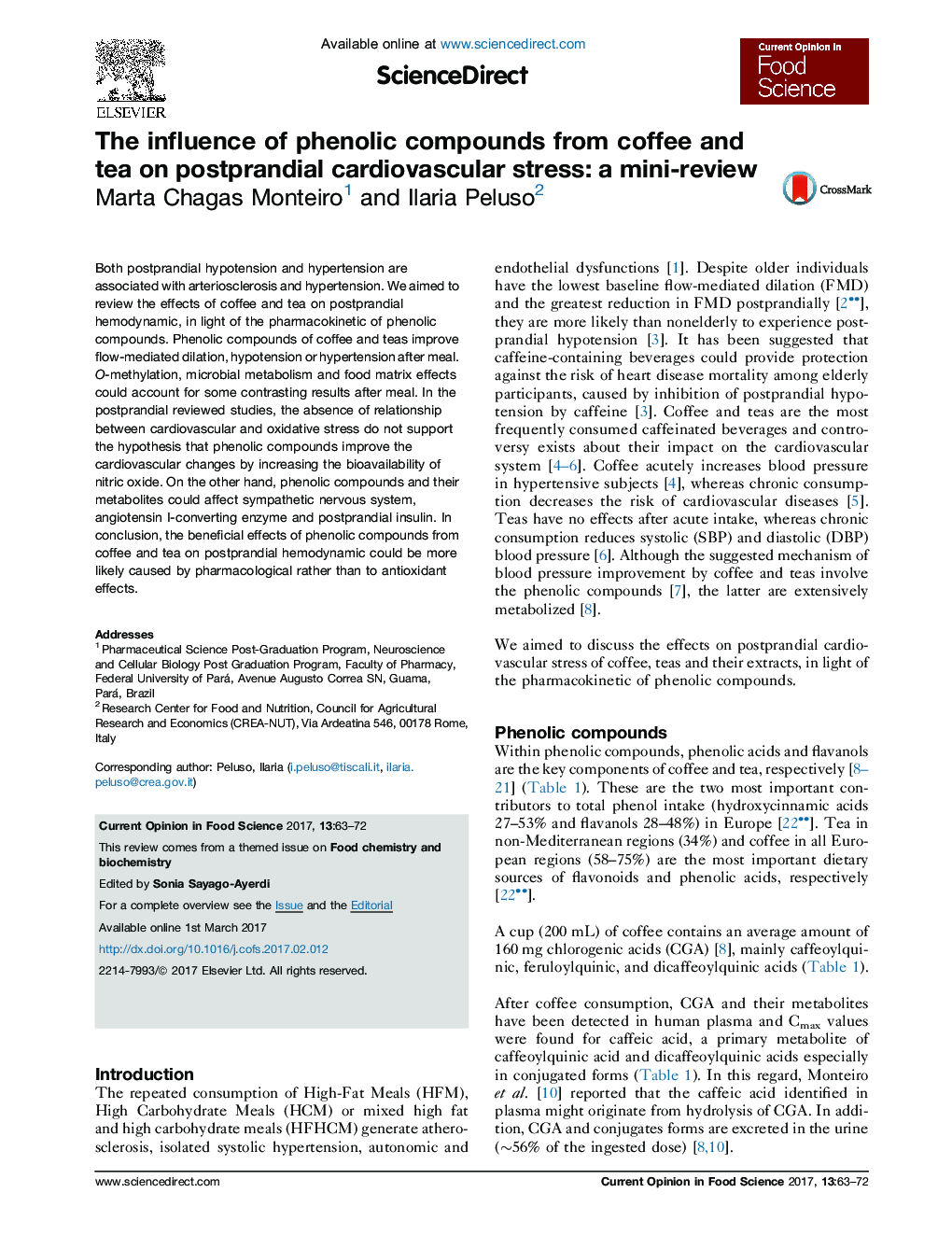| کد مقاله | کد نشریه | سال انتشار | مقاله انگلیسی | نسخه تمام متن |
|---|---|---|---|---|
| 5520923 | 1545092 | 2017 | 10 صفحه PDF | دانلود رایگان |
- Coffee and teas improve FMD, hypotension or hypertension after meal.
- Metabolism of phenolics could account for some contrasting results.
- Food matrix effects on phenolics' bioavailability must be taken into account.
- No relationship between hemodynamic, oxidative stress and NO after meal.
- Coffee and teas may improve postprandial hemodynamic by pharmacological mechanisms.
Both postprandial hypotension and hypertension are associated with arteriosclerosis and hypertension. We aimed to review the effects of coffee and tea on postprandial hemodynamic, in light of the pharmacokinetic of phenolic compounds. Phenolic compounds of coffee and teas improve flow-mediated dilation, hypotension or hypertension after meal. O-methylation, microbial metabolism and food matrix effects could account for some contrasting results after meal. In the postprandial reviewed studies, the absence of relationship between cardiovascular and oxidative stress do not support the hypothesis that phenolic compounds improve the cardiovascular changes by increasing the bioavailability of nitric oxide. On the other hand, phenolic compounds and their metabolites could affect sympathetic nervous system, angiotensin I-converting enzyme and postprandial insulin. In conclusion, the beneficial effects of phenolic compounds from coffee and tea on postprandial hemodynamic could be more likely caused by pharmacological rather than to antioxidant effects.
Journal: Current Opinion in Food Science - Volume 13, February 2017, Pages 63-72
